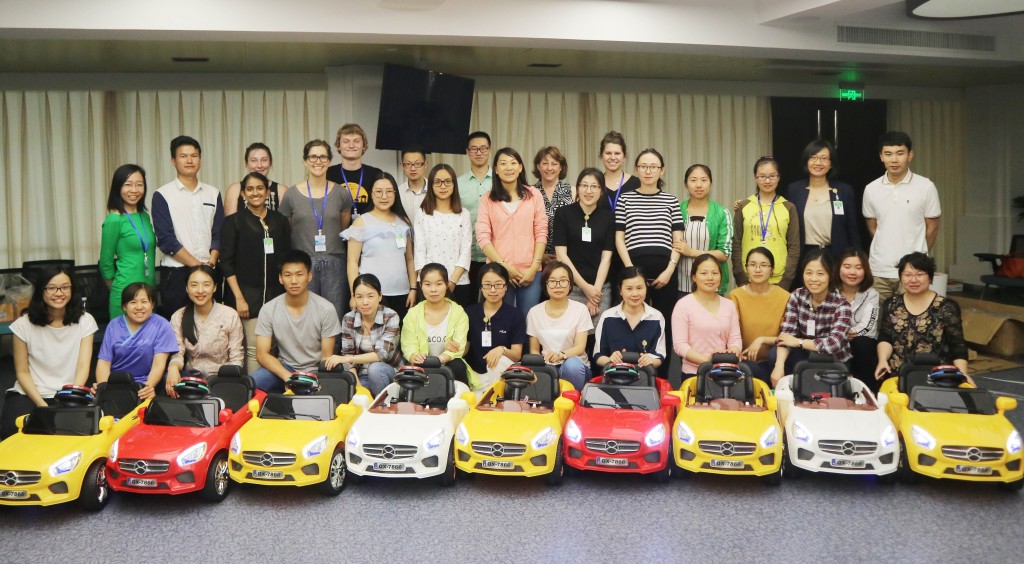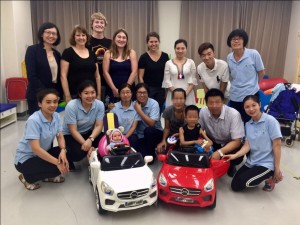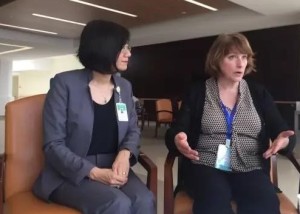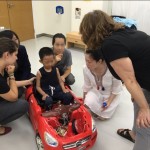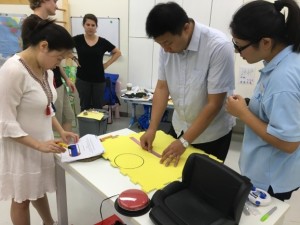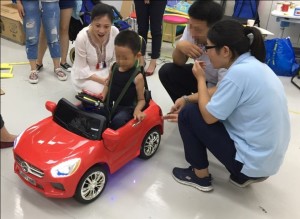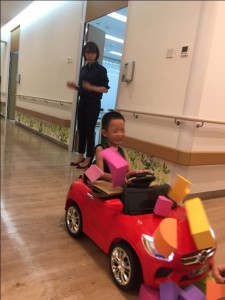GoBabyGo is a US community-based non-profit research program that provides modified ride-on cars to children up to age 3 with limited mobility, such as children with cerebral palsy, Down syndrome, and spinal injury. Program teams design and retrofit toy ride-on cars based on a rehabilitative assessment of a child’s motor ability. Driving the ride-on cars can help children with disabilities to develop their sense of autonomy, judgement, and tactile response, and also facilitate physical development or recovery. The program was initiated by Dr. Cole Galloway at Delaware University in 2012. The program offers impaired children precious opportunities for movement, mobility, and socialization, integrating assistive techniques, families, physicians, and corporate partners.
The initial launch of GoBabyGo in China brought 10 modified ride-on cars in total to Chinese children. Special donation ceremonies were held at LIH SkyCity Rehabilitation Hospital and LIH Olivia’s Place Beijing. Dr. Sandra Rogers, Professor at Pacific University (Oregon, US), and Dr. Fengyi Kuo, LIH Healthcare Occupational Therapy Corporate Lead, presented 4 retro-fitted ride-on cars to 2 Kunming families and 2 Beijing families. In Beijing, therapists from Shunyi Women and Children’s Hospital of Beijing Children’s Hospital also participated in the program.
GoBabyGo has been promoted in the US for 15 years and it is hoped that the modified ride-on cars can now be accessible to more Chinese children with disability, helping to improve their mobility. According to Dr. Sandra Rogers, GoBabyGo has been working in many nations and the reason for choosing Kunming and Beijing as the first cities in China to launch the program was that LIH Healthcare has international facilities with an advanced rehabilitation philosophy that matches well with the program’s philosophy and vision.According to Dr. Kuo, through the training conducted by Dr. Sandra Rogers and her team, physicans and therapists in Kunming and Beijing learned basic techinques to retrofit the motorized cars.
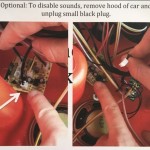
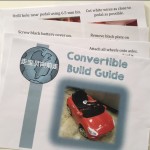 A child in Beijng, who has Type II Spinal Muscular Atrophy, sat in the car trying to make it move. When he was asked by a therapist which color car he liked best, he answered, “red,” without any hesitation, and gave a new name to the car- a little red bee! The child’s dad was asked to join the assembly team. He took out all the parts started work with the clinical team.
A child in Beijng, who has Type II Spinal Muscular Atrophy, sat in the car trying to make it move. When he was asked by a therapist which color car he liked best, he answered, “red,” without any hesitation, and gave a new name to the car- a little red bee! The child’s dad was asked to join the assembly team. He took out all the parts started work with the clinical team.
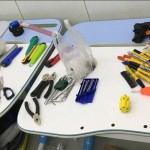 In Kunming, When Dr. Rogers and her team learned than an 8-year-old child would be presented with a car, they searched for a larger ride-on car to retrofit. “We will tweak the car to fit each child’s condition, if the recipient is an older child, we will choose a proper sized car specific to the child’s situation, make the car more comfortable to maneuver for the child,” said Dr. Kuo.
In Kunming, When Dr. Rogers and her team learned than an 8-year-old child would be presented with a car, they searched for a larger ride-on car to retrofit. “We will tweak the car to fit each child’s condition, if the recipient is an older child, we will choose a proper sized car specific to the child’s situation, make the car more comfortable to maneuver for the child,” said Dr. Kuo.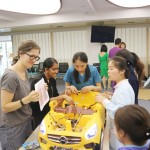
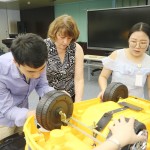
When the assembly was finished, the program team and therapists let kids sit in the cars, adjusting the manual brake to make it easy to manipulate. At the same time, they tweaked the seats to make the child felt cozy behind the wheel, and enjoy the freedom of a little mobility when driving.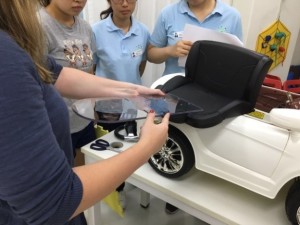
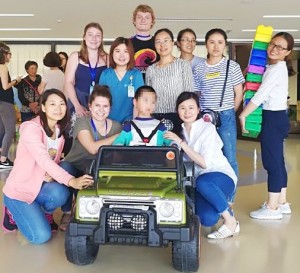
With the guidance of their therapy teams, the children learned to drive the modified cars, use the controller, and avoid the obstacles placed by therapists. They learned quickly while having fun.
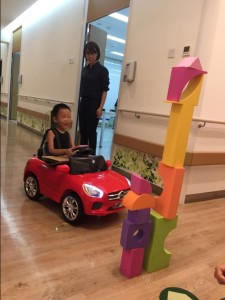
In Beijing, a young driver can’t get enough of his ride-on car, especially when crashing into targets.
Modified on-ride cars can improve children’s cognitive ability and independence, at the same time bringing happiness through play. The kids in Beijing were given group pictures as the event came to a close, some children exclaimed, “we are a family”, yeah! We are families, caring about each other, and fighting for love!” Here, we’d like to extend our appreciation to Dr. Sandra Rogers, and her team, for this great program they brought to Chinese families and their dedication and contribution to pediatric rehabilitation.Together with LIH Healthcare, GoBabyGo is sure to continue its journey in China, creating more opportunities for the children we serve and their families.





